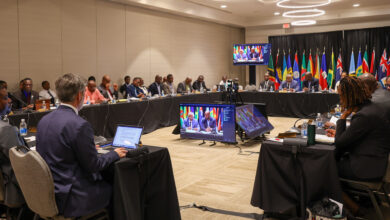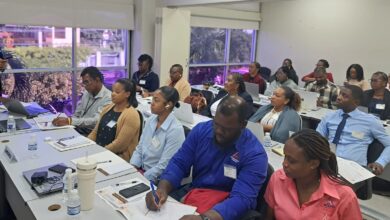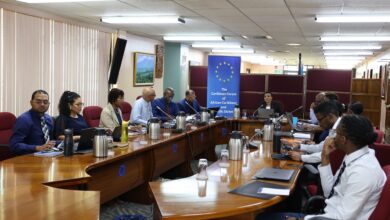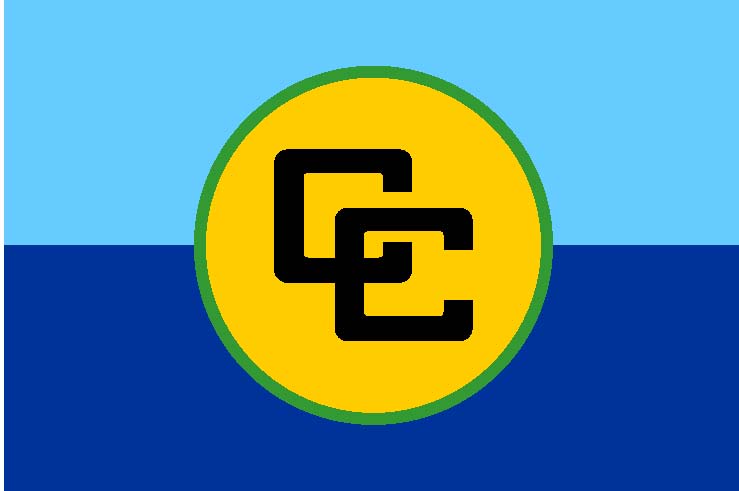On Thursday the Regional HIV/AIDS task force will convene it’s fifth meeting with the specific objective of formulating the plan of action for the European Commission-funded project aimed at strengthening the institutional response to HIV/AIDS/STI in the Caribbean. This meeting, which will be held at the Hilton Hotel in Port-of-Spain, Trinidad, is also the first of the project advisory group.
At the meeting regional and international experts will seek to outline the needs of the regional institutions and come up with a plan of action to best utilise the 6.9 Million Euros (US$ 6 Million) allocated by the EU for the Caribbean Region. One of the objectives of the two-day meeting will be to identify the principle issues that will make up the plan of action and to work out the rules of engagement between the Caribbean Community (CARICOM), the donor agency and the regional institutions.
The main objective of the HIV/AIDS/STI project is to reduce the spread and impact of HIV/AIDS in the Caribbean by strengthening the regional institutional capacity to plan and coordinate an effective response to the HIV/AIDS epidemic, particularly in the worst affected countries.
The work programme will be coordinated by the Human and Social Development Programme of CARICOM and implemented in the fifteen Member States of CARIFORUM. The principal institutions also involved in the implementation of the project include, the Caribbean Epidemiology Centre (CAREC), UNAIDS, the Caribbean Network of People Living with HIV/AIDS (CRN+), the University of the West Indies (UWI) and the Caribbean Health Research Council (CHRC).
Once completed it is expected that the programme will yield several benefits:
- A pool of skilled personnel able to contribute to effective policy development, planning and implementation of HIV/AIDS/STI programmes
- Increased awareness about benefits, costs and operational feasibility of programmes to reduce mother to child transmission of HIV/AIDS
- An expanded and effective regional network of people with HIV/AIDS in six countries working for improved care and support and contributing to national policy development
- Improved regional capacity to design, implement and evaluate programmes to reduce high-risk behaviour related to the spread of STI/HIV infection
- More comprehensive and accurate information on the course, consequences and costs of the epidemic through improved surveillance, monitoring and evaluation of national control programmes and through operational research.
The programme will also compliment regional and national level HIV/AIDS interventions financed through the European Development Fund (EDF), by Member States of CARICOM, bilateral programmes of the European Union, the United Nations (UN) system and other donors.
In the Caribbean Region it is estimated that between 16 – 18 thousand persons have AIDS and about 310 thousand have the HIV virus.





